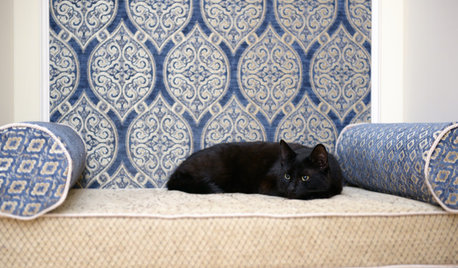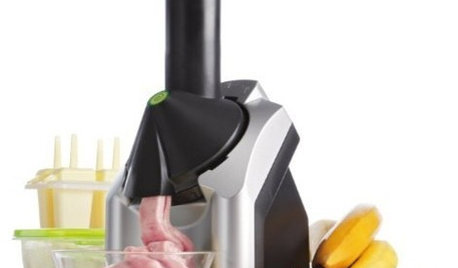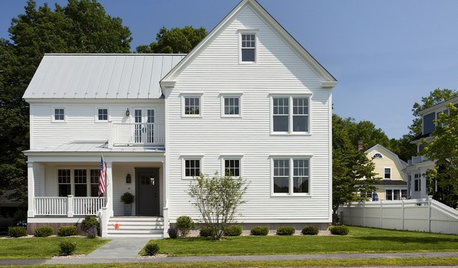Cancer and healthy living
bruggirl
19 years ago
Related Stories

HEALTHY HOMEGet Your Light Right for a Healthy House
Homes that are too bright at night and too dark during the day are ruining our health. Here's what you can do
Full Story
PETS10 Tips for Keeping Indoor Cats Healthy and Happy
It's National Cat Day: Ask not what your cat can do for you (because it will ignore you) but what you can do for your cat
Full Story
GARDENING AND LANDSCAPINGSublime Coastal Woods Gain a Healthy New Foothold in Maine
Erosion was threatening, and much of the wildlife had fled. See how a homeowner and her landscape architect drove back the danger
Full Story
HOUZZ TOURSHouzz Tour: A Texas Home Gets a Healthy, Fresh Start
Mold eradication was just the beginning for this Austin family's home on a creek bed — toxins of all kinds now don't make it past the door
Full Story
KITCHEN DESIGNEcofriendly Kitchen: 9 Healthy Lifestyle Habits
Good for your body often means good for the planet. These kitchen ideas can help make your cooking and eating routines better for both
Full Story
PRODUCT PICKSGuest Picks: An Arsenal of Tools for Healthy Eating
Make cooking and juicing easier whether you follow a vegetarian, vegan, Paleo, primal or other diet
Full Story
HOUSEPLANTS8 Essentials for Healthy Indoor Plants
Houseplants add so much to our homes — and can thrive when grown in the right conditions. Keep these tips in mind
Full Story
HEALTHY HOME16 Ideas for a Healthy, Feel-Good Home
Making these small tweaks and bigger shifts at home can help you thrive everywhere you go
Full Story
HOUZZ TOURSHouzz Tour: The Concord Green Healthy House
New home built for efficiency and flexibility finds its place in historic New England neighborhood
Full Story
GARDENING GUIDESHow to Keep Your Citrus Trees Well Fed and Healthy
Ripe for some citrus fertilizer know-how? This mini guide will help your lemon, orange and grapefruit trees flourish
Full StoryMore Discussions






rusty_blackhaw
bruggirlOriginal Author
Related Professionals
Danbury Landscape Architects & Landscape Designers · Leawood Landscape Architects & Landscape Designers · Clermont Landscape Contractors · Wakefield Landscape Contractors · Wilmington Landscape Contractors · Beverly Hills Landscape Contractors · Danvers Landscape Contractors · Deerfield Landscape Contractors · Indianapolis Landscape Contractors · Melrose Park Landscape Contractors · San Antonio Landscape Contractors · West Orange Landscape Contractors · Sun Valley Landscape Contractors · Manassas Roofing & Gutters · Cave Spring Roofing & Guttersrusty_blackhaw
Heathen1
bruggirlOriginal Author
moonwolf23
Heathen1
bruggirlOriginal Author
rusty_blackhaw
bruggirlOriginal Author
Judy_B_ON
Heathen1
bruggirlOriginal Author
rusty_blackhaw
Heathen1
bruggirlOriginal Author
rusty_blackhaw
moonwolf23
Heathen1
moonwolf23
tasymo
rusty_blackhaw
tasymo
lorna-organic
apollog
apollog
rusty_blackhaw
apollog
lorna-organic
rusty_blackhaw
lorna-organic
rusty_blackhaw
apollog
rusty_blackhaw
apollog
rusty_blackhaw
lorna-organic
rusty_blackhaw
patriotsniper
rusty_blackhaw
patriotsniper
apollog
rusty_blackhaw
patriotsniper
brendan_of_bonsai
rusty_blackhaw